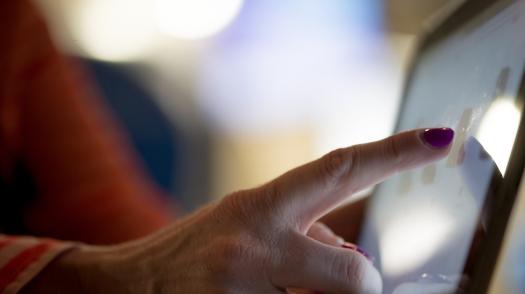
Non-traumatic brain injury causes
Read about how non-traumatic brain injuries can happen.
Geraint was 11 when he suffered an asthma attack, which resulted in an acquired brain injury. His father Chris shares their story.
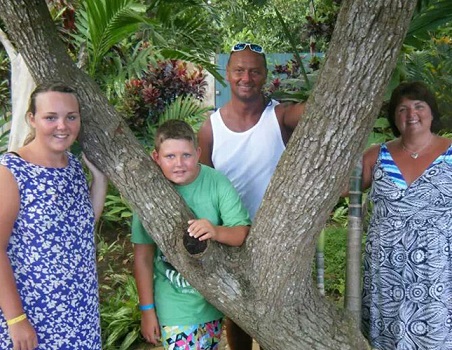
Published: October 2014. Date of brain injury: 2014, aged 11
My son Geraint suffered an asthma attack in January 2014. My wife Julie and daughter Kayley took him to the local surgery as he was not responding to medication. He was put on oxygen and monitored but as the attack escalated, he was admitted to hospital.
He was given back-to-back nebulisation but his oxygen levels continued to drop and his heart rate kept rising. We were frantic as nothing worked but were reassured of other options.
Geraint was extremely distressed with a lot of pain in his chest. He was taken to intensive care and intubated. I nipped home to pick up a few things and take Kayley to her nan's. But Julie called me to go back ASAP. Geraint had taken a turn for the worse. He'd had a cardiac arrest and doctors had to work on him for 14 minutes.
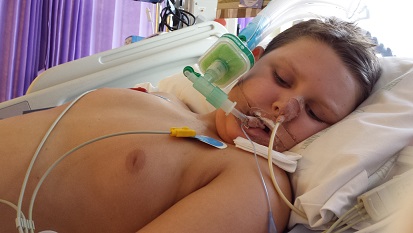
I felt a huge sense of despair. It seemed an eternity before they came to say they had got him back. Julie was remarkably calm. She consoled me and her own father. Me, Julie, Kayley and Geraint's grandparents waited for news. Although we were told what to expect when we were allowed to see him, nothing can prepare you. He was grey and his lips and eyelids were blue.
Geraint was in an induced coma for a week. We didn't eat or sleep, just kept a vigil by his side. We played his favourite music and performed passive joint movements to stop him getting stiff.
The staff were amazing. It helped that they reminded us that we needed to take care of ourselves so that we could take of him.
Geraint was slowly taken out of his coma. Any slight finger movements or a flicker of his eyelids felt like a small victory; it gave us a huge lift. After another week of tiny improvements, I felt him squeeze my hand. I was ecstatic. His other hand then curled up. My elation was quickly dispelled as it looked like a spasm to me. The nurse went to get a consultant. My heart sank, as I knew what this could mean – potential damage to the brain. I didn't mention it to Julie.
Geraint was booked in for an MRI to asses any damage on his brain. Julie had a positive frame of mind as many of the other indications were good; when the body is starved from oxygen the brain protects itself and the other organs tend to fail first. Geraint's organs were fine.
However, I had a bad feeling. The neuro consultant showed us the MRI results. At first, the images looked healthy but as they showed more of the scan, I began to feel sick. No one else seemed to understand what this meant so the consultant explained all the white was dead tissue and Geraint had indeed suffered extensive brain damage. We all went numb. My mind raced for the future.
The next two weeks were a blur. I remember thinking, enough of thinking ahead, look after today. Julie was the opposite, always upsetting herself, thinking that Geraint will never get married, have a job.
Small improvements were made and we had his first smile. The spasms increased in intensity. So much so that Geraint would arch off the bed if we didn't do the passive movements.
His tracheostomy was removed. This was a double-edged sword. We were elated that he had taken another step forward, but it meant we could hear him screaming in pain all day. This was distressing for us and staff. Julie and I were sometimes by his bedside 18 hours a day moving his joints to give him some pain relief.
Our parents and Kayley did a lot to help where possible. Kayley was studying for her A-levels at the time to gain a place in paediatric nursing.
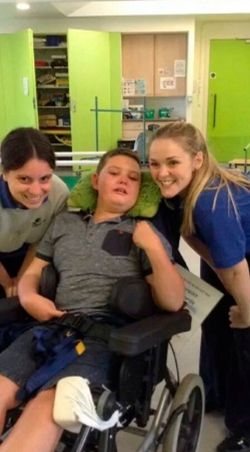
Kayley was speaking to Geraint on the phone. When she finished the conversation by saying goodbye, he replied totally out of the blue. We all looked at each other in disbelief. I asked him to say dad and he did. The look on his face when he realised he could communicate was priceless!
Geraint left to go to a rehabilitation centre, The Children's Trust on 30 June, two days after his 12th birthday. Leaving the ward was emotional. We had built up great relationships with the staff. It was particularly hard for Geraint. He has always been an emotional child but it seems the injury had intensified his emotions.
At the rehabilitation centre we were met by Geraint's key worker, Warren. Geraint tends to work well with people who have a bubbly personality, and Warren had that in spades so from the first night he settled well. However, Julie and I found it more difficult as one of us had always been by his bedside so didn't know how he would adjust. It was a learning curve and I was probably the one to take longest to adjust.
Geraint settled well into the routine of therapies and all those working with him had the personality to get the best out of him. His wheelchair was a hindrance as it didn't fit well and he was covered in bruises a lot of the time. It had to be padded out to make it more comfortable.
His eating, speech and motor control skills improved and he was monitored by his doctor who showed great patience in answering all questions or concerns.
The discharge day soon came around, although we did believe that he could have done with more rehabilitation.
Geraint was very emotional. It took us some time to try to calm him enough for transport home. Warren and Piero, a care assistant, accompanied him in an adapted bus and we followed.
Geraint settled well at first. He went to his new school for physio and occupational therapy three times a week. But things started going downhill after a week. The care plan was not fully in place, so we did the lot for 24hrs; meds, cares, feeding. I never slept more than five hours since the injury, so I was exhausted. I couldn't think straight and Julie was in a similar situation.
After three weeks Geraint was admitted to hospital as his spasms had intensified and because of other problems.
As I write our story, we are still here in hospital as we are trying to alter Ger's medication; trying to find the right dose to ease the spasms. We are so eager to get him back into a similar routine as he had when he was at the rehabilitation unit.
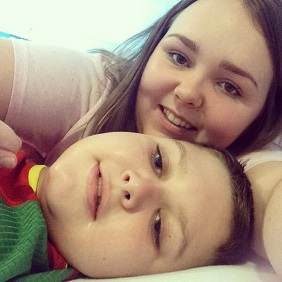
It's a tough time when you are waiting on a care package to come together as well as a date for school; a hard time of constant waiting and a feeling that we're struggling to move forward and have been put to one side and have to get on with it.
But we will continue to fight for everything. Sometimes it's hard to see into the future, where you can return to work. You can't expect a carer to do the same as you. However, my energy does wane. Throughout the night we need to constantly move Ger. It does take a toll, physically. I have sciatica and a trapped nerve in my shoulder with tendonitis on both elbows. But this is nothing to what my son is going though so I will keep doing what is needed.
When an injury like this hits a member of your family, your life changes dramatically forever. People are always surprised when I tell them it was an asthma attack that caused the injury. Looking at the extent of the damage on the scan, he should not have progressed so much. All his memory and sense of humour is still there, but he is struggling to gain motor control. How much he'll gain back we can't tell, and what behavioural problems he may have, we don't know. That's the problem with this type of injury; no one can tell how much the brain will adjust. Every person with exactly the same injury will have different outcomes.

Read about how non-traumatic brain injuries can happen.

This section offers some ideas for managing while your child is in hospital.
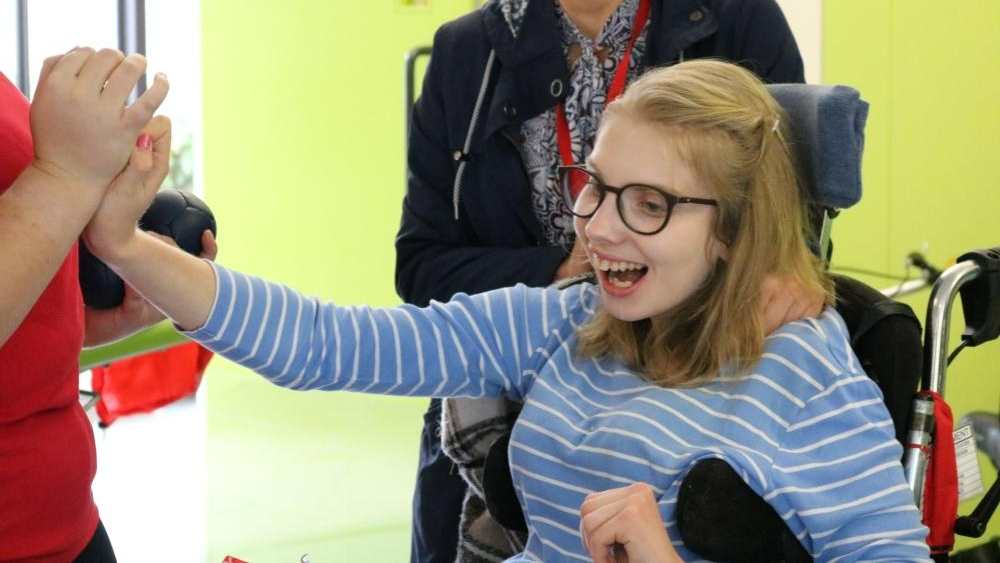
We offer a range of residential brain injury rehabilitation services for children and young people with acquired brain injury (ABI).